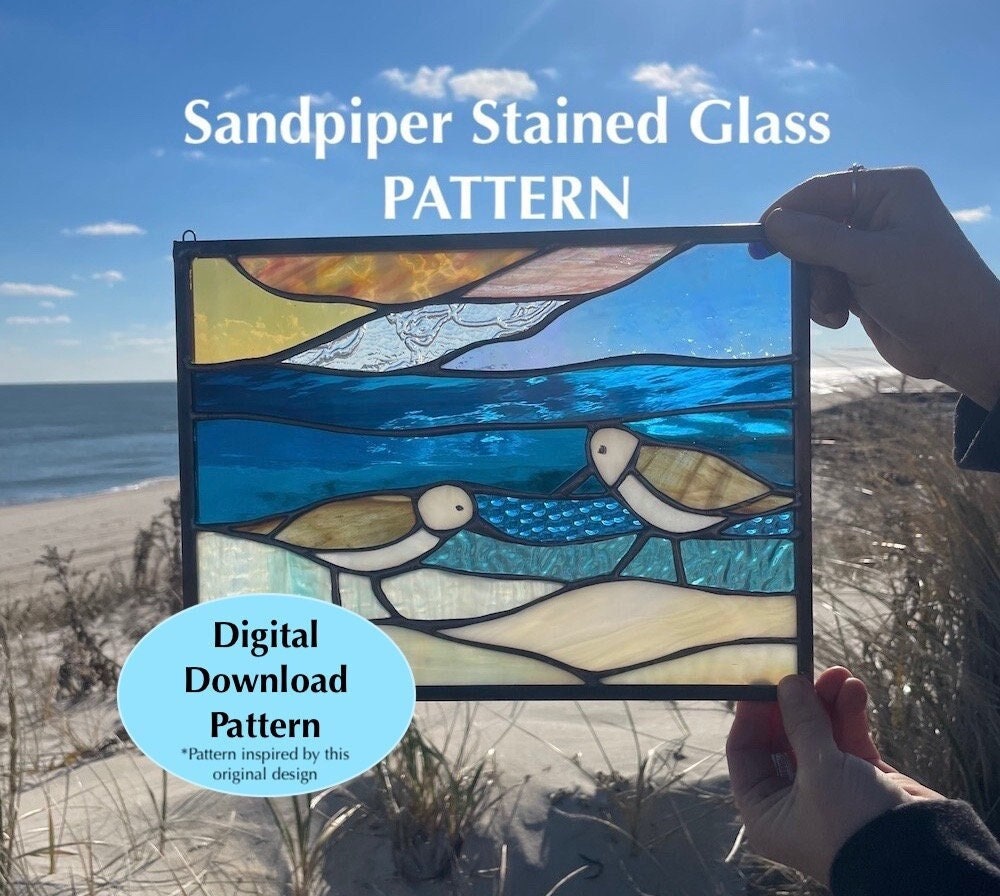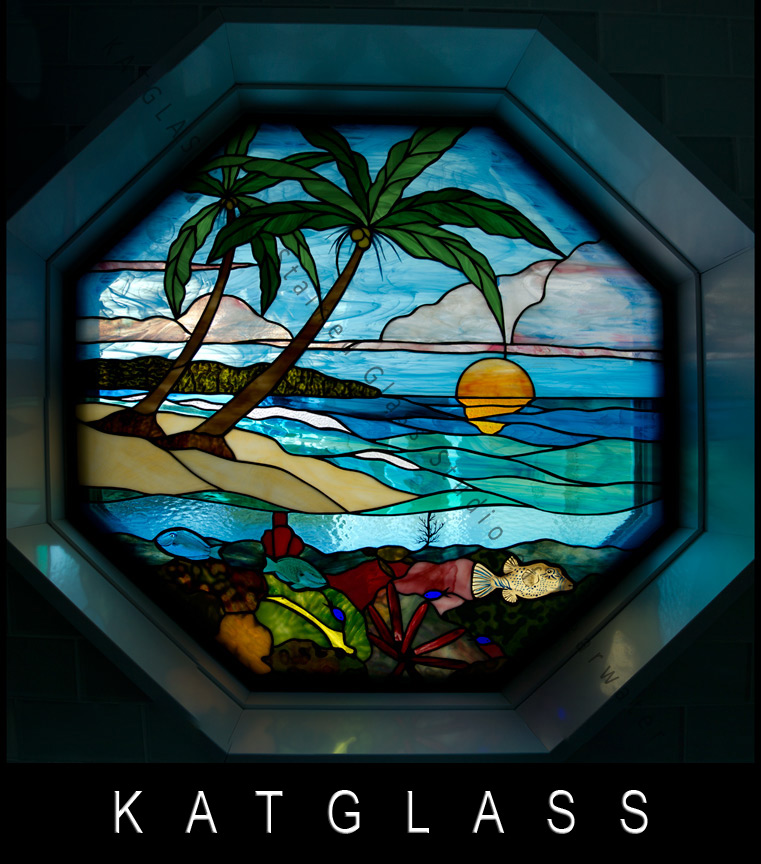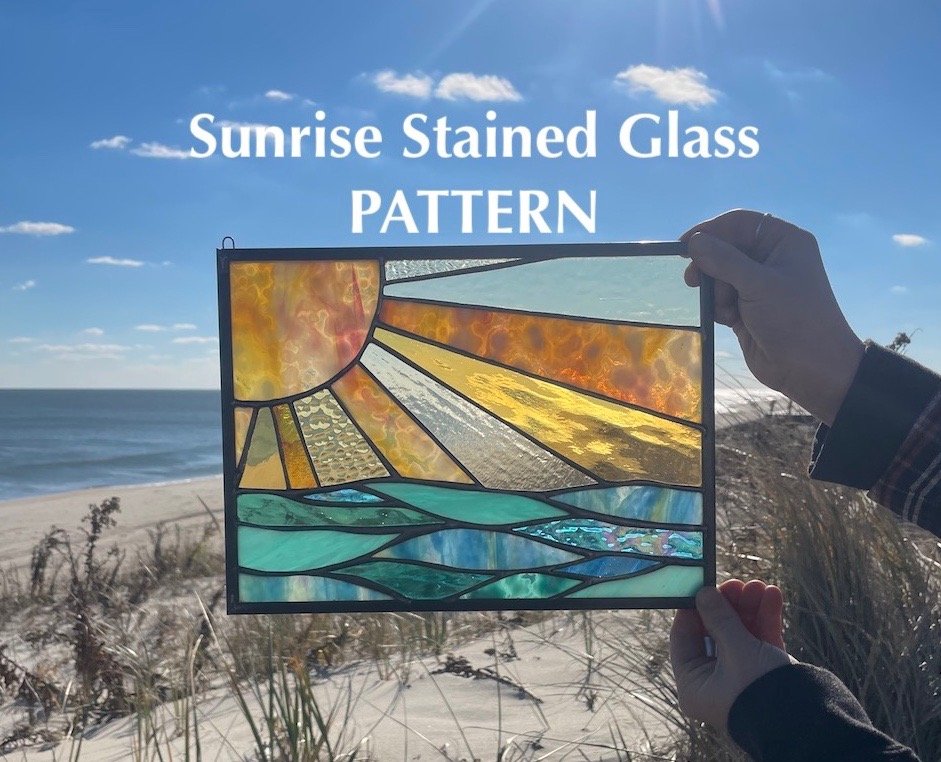Stained glass has historically been associated with cathedrals and churches, casting colorful light into sacred spaces. However, the fusion of stained glass art with coastal themes has created a captivating trend that brings the beauty of the beach indoors. This article delves into the enchanting realm of stained glass beach patterns, exploring their designs, techniques, cultural significance, and how they can transform your coastal decor.
Understanding Stained Glass Beach Patterns
Stained glass beach patterns reflect the vibrant colors and fluid forms found in nature. Artwork in this genre often incorporates elements like waves, seashells, and ocean sunsets. By blending traditional stained glass techniques with beach-inspired designs, artists create stunning visual narratives that evoke the tranquility and beauty of the seaside.
The Art of Stained Glass
Stained glass artistry involves several techniques that enhance the beauty and durability of the designs. Key methods include:
- Lead Came: A traditional technique using lead strips to assemble pieces of glass.
- Tiffany Technique: Utilizes copper foil instead of lead, allowing for more intricate designs.
- Etching: Involves creating patterns by removing the glass surface with acid or engraving tools.
- Fusing: Melting glass pieces together at high temperatures for seamless designs.
Cultural and Local Experiences
The charm of stained glass beach patterns can be observed in various coastal communities across the USA. For instance, in Cape May, New Jersey, local artists showcase their work at the annual Art in the Park festival, where beach-inspired stained glass pieces capture the essence of the shore.
Incorporating Stained Glass Beach Patterns into Your Home
Integrating stained glass beach patterns into your home decor can enhance the ambiance of any coastal-themed space. Here are some tips to consider:

Choosing the Right Space
Identify areas in your home where stained glass can make a statement. Popular choices include:
- Windows: Enhance natural light with custom stained glass windows.
- Doors: Create a focal point at entryways with glass panel designs.
- Room Dividers: Use stained glass to separate spaces while allowing light to filter through.
Selecting Colors and Designs
Opt for colors that resonate with the beach. Blues, greens, and sandy neutrals can evoke a serene coastal environment. Consider designs that reflect your surroundings, such as:
- Wave Patterns: Capture the movement of the sea.
- Shell Motifs: Add a touch of the beach’s treasures.
- Sunset Hues: Infuse warm tones that mirror breathtaking views.

Pros and Cons of Stained Glass Techniques
| Technique | Pros | Cons |
|---|---|---|
| Lead Came | Durable, traditional appeal | Heavier, can be more difficult to work with |
| Tiffany Technique | More intricate designs possible, lighter | Less durable over time compared to lead |
| Etching | Unique textures and patterns | Can be more costly and time-consuming |
| Fusing | Seamless designs and vibrant colors | Requires specialized equipment |
Buying Stained Glass Beach Patterns
When looking to purchase stained glass beach patterns, consider local artisan shops, online marketplaces, and art fairs. Here are some tips:

Where to Buy
Explore these platforms and services for quality stained glass art:
- Local Artisans: Support local artists by visiting galleries or craft fairs.
- Etsy: An excellent platform for finding unique handmade items.
- Art Shows: Attend regional art fairs to discover new talents and styles.
Price Considerations
Pricing for stained glass can vary widely based on size, complexity, and artist reputation. Here’s a general guideline:
- Small Panels: $100 – $300
- Medium Panels: $300 – $800
- Large Installations: $800 and up

DIY Stained Glass Beach Patterns: Is It for You?
For the creatively inclined, making your own stained glass beach patterns can be incredibly rewarding. However, it requires investment in time, tools, and materials.
Essential Tools and Materials
Before diving into a DIY project, ensure you have the following:
- Glass Cutter
- Safety Glasses
- Cutting Board
- Foil or Lead
- Flux and Soldering Iron

Step-by-Step Guide to Creating Your Own Design
- Design: Sketch your idea on paper.
- Select Glass: Choose colors and textures.
- Cut Glass: Carefully cut pieces according to your design.
- Assemble: Use foil or lead to hold pieces together.
- Solder: Seal the connections for durability.
Cultural Significance of Beach Patterns in Art
Beach patterns have not only inspired stained glass art but have also become a potent cultural symbol for many coastal communities. These designs often reflect local heritage, maritime history, and the spiritual connection individuals have with the ocean.

The Role of Stained Glass in Coastal Culture
Many artists view their work as a way to preserve local traditions and tell stories of the sea. In places like Maine, for instance, stained glass pieces adorning homes tell tales of fishermen, lighthouses, and the rugged coastal landscape.
FAQs About Stained Glass Beach Patterns

What are stained glass beach patterns?
Stained glass beach patterns are artistic designs that incorporate elements of coastal landscapes, such as waves, shells, and sunsets, rendered in colorful stained glass.
How can I care for stained glass beach art?
To maintain stained glass artwork, regularly dust with a soft cloth and avoid using harsh chemicals. Clean with a damp cloth as needed.

Can I create my own stained glass beach patterns?
Yes! With the right tools, materials, and a bit of creativity, you can design and create your own stained glass pieces.
Where can I find stained glass beach pattern artists?
Local art fairs, galleries, and online platforms like Etsy are great places to discover artists specializing in stained glass beach patterns.
Conclusion
Stained glass beach patterns offer a unique way to bring the beauty of the ocean into your home. Whether you choose to purchase from local artisans or embark on a DIY project, these vibrant designs can transform your space and evoke a sense of calm and nostalgia. By embracing these artistic expressions, you not only enhance your decor but also celebrate the rich cultural ties that coastal communities have with their surroundings.